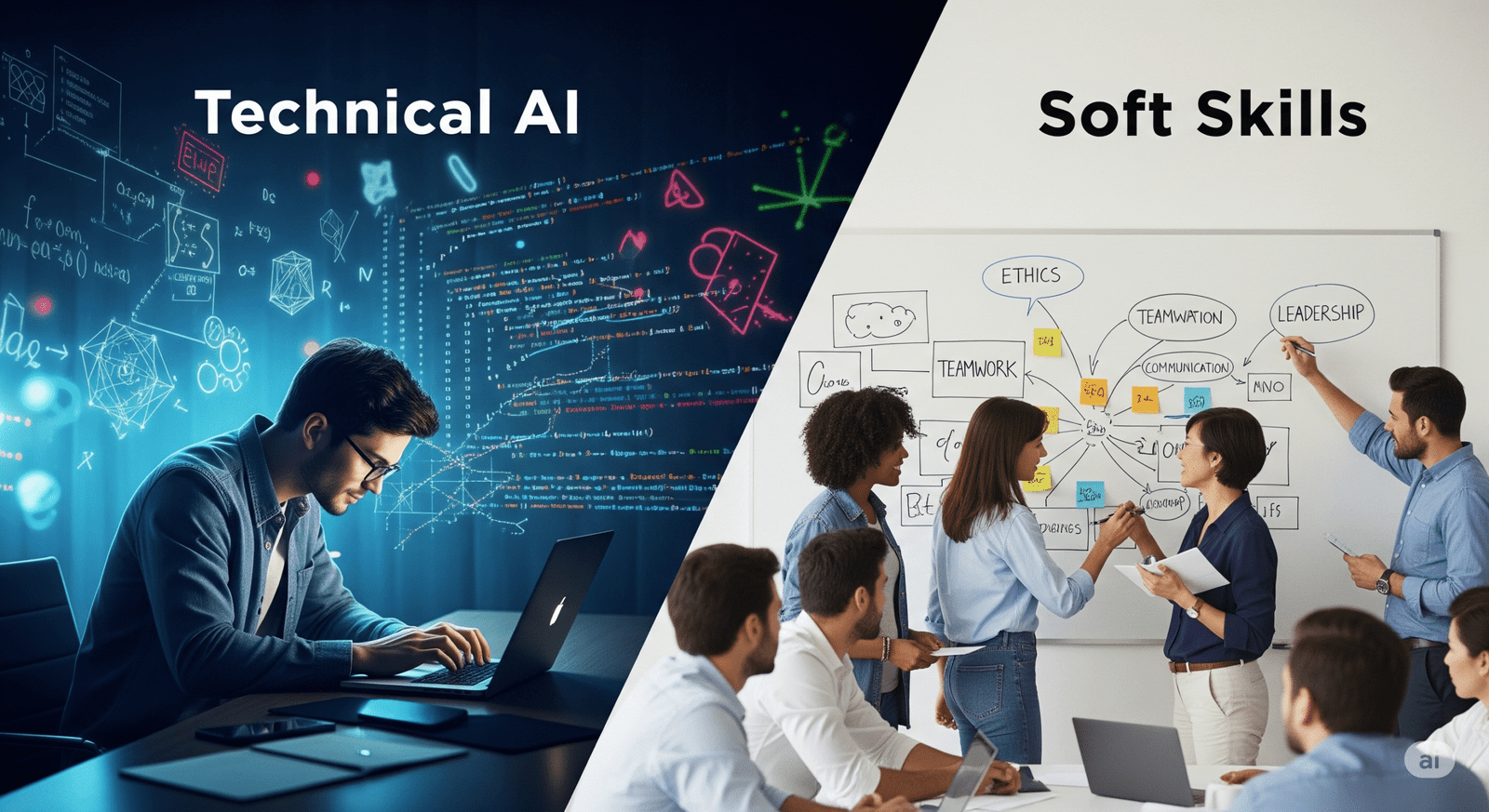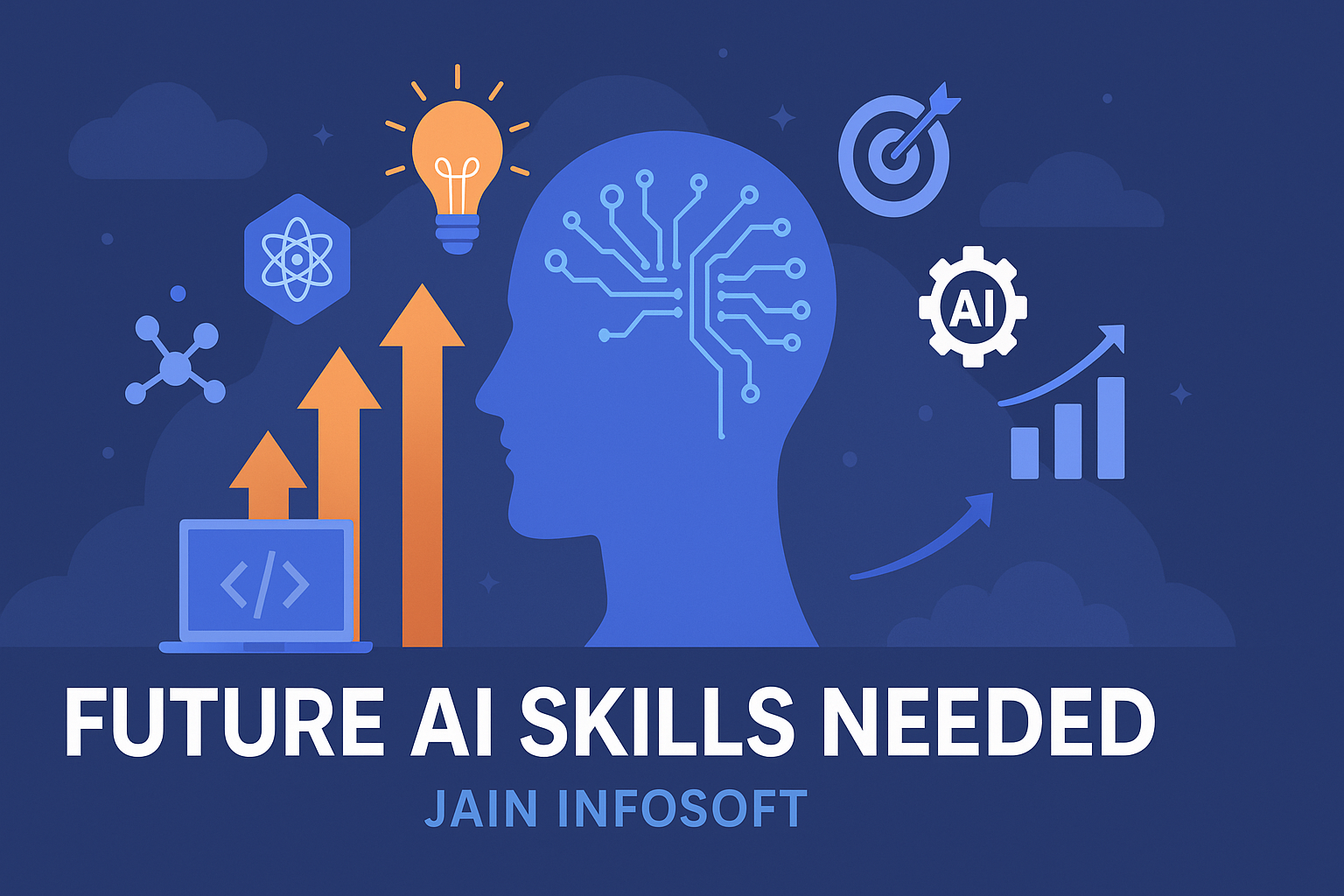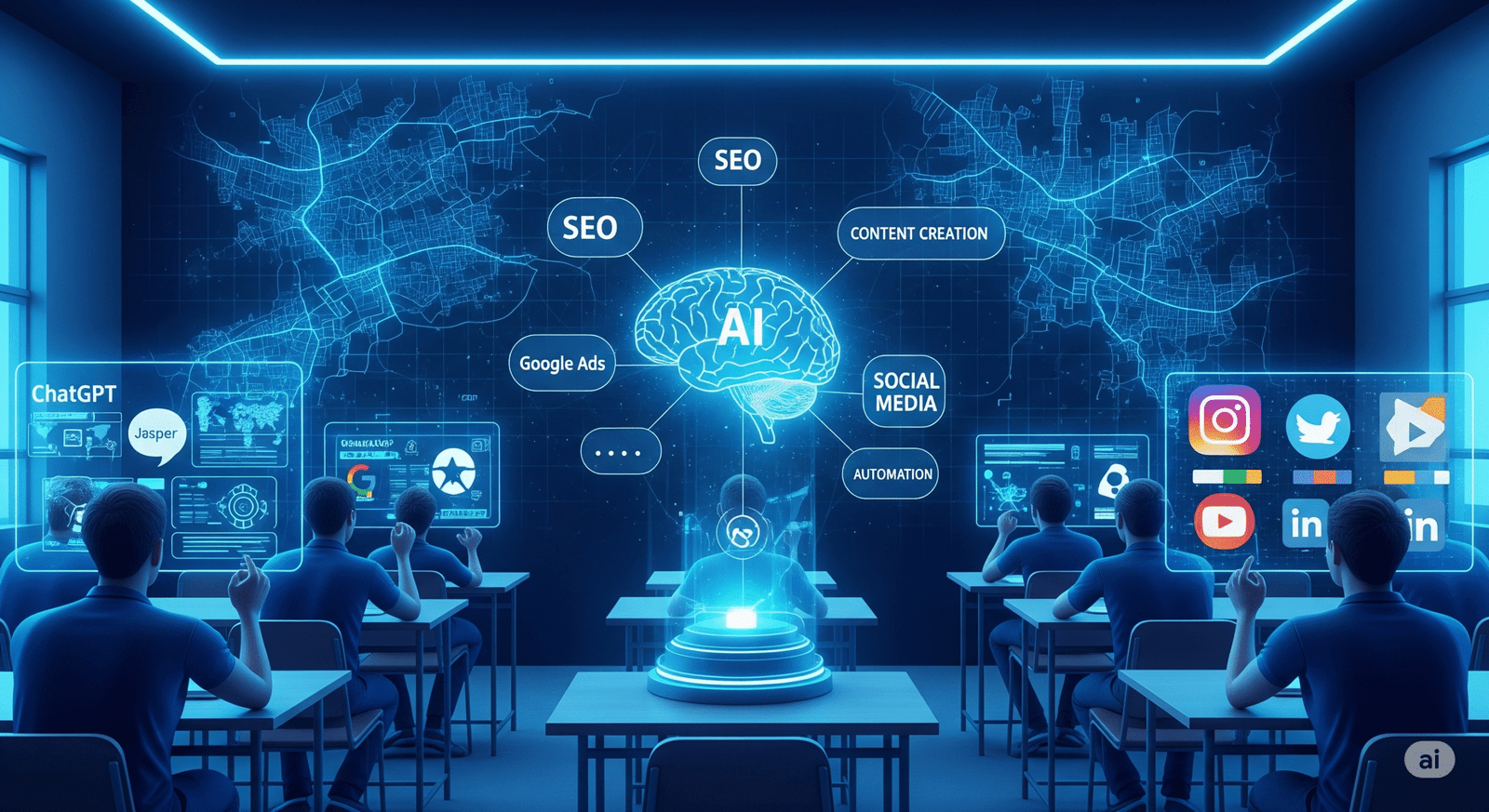Introduction: Why Both Soft and Hard Skills Matter in AI
In the AI world, technical skills get you through the door, but soft skills help you grow, collaborate, and lead. Whether you aim to become an AI engineer, data scientist, or ethical AI advocate — mastering both is essential for long-term success.

Hard Skills in AI (Technical Skills)
These are measurable, teachable abilities often learned through courses, degrees, or hands-on projects.
1. Programming Languages
- Python – Most popular for AI/ML
- R, Java, C++, and Julia – Also used in different AI fields
2. Mathematics & Statistics
- Linear Algebra
- Calculus
- Probability & Statistics
- Optimization methods
3. Machine Learning Algorithms
- Supervised & Unsupervised learning
- Deep Learning (CNNs, RNNs, GANs)
- Reinforcement learning
4. Data Science & Data Engineering
- Data preprocessing, cleaning, analysis
- Feature engineering
- Big Data tools: Hadoop, Spark
5. Working with AI Tools
- TensorFlow, PyTorch
- Scikit-learn
- Keras, OpenCV
- Hugging Face Transformers
6. Natural Language Processing
- Text analysis
- Language modeling
- Chatbot creation
7. Cloud Platforms & APIs
- AWS, Google Cloud AI, Microsoft Azure
- RESTful APIs for AI integration
8. Version Control
- Git, GitHub – Crucial for collaboration and project management
Soft Skills in AI (Human-Centered Skills)
These help you communicate, lead, and solve problems effectively in teams and across industries.
1. Critical Thinking
- Analyze problems before building a model
- Evaluate the ethical implications of AI decisions
2. Communication Skills
- Explain complex models to non-technical teams
- Create clear reports and presentations
3. Creativity
- Design innovative solutions using AI
- Think outside the box with model applications
4. Teamwork & Collaboration
- Work effectively in cross-functional teams (developers, analysts, managers)
5. Ethical Reasoning
- Understand bias, fairness, and responsibility in AI systems
6. Adaptability
- Learn new tools and technologies fast
- Respond to rapidly changing AI trends
7. Project Management
- Plan AI projects
- Manage time, tasks, and resources efficiently
Comparison Table: AI Hard Skills vs Soft Skills
| Category | Hard Skills | Soft Skills |
|---|---|---|
| Programming | Python, R | Communication |
| Math | Calculus, Stats | Critical Thinking |
| Tools | TensorFlow, PyTorch | Teamwork |
| Data | Cleaning, Analysis | Ethical Reasoning |
| ML/NLP | CNNs, NLP, APIs | Adaptability |
Why Students & Professionals Need Both
- Employers want AI experts who code well and think smart.
- Projects succeed when technical execution meets collaborative vision.
- Future AI leaders will not just be engineers, but ethical innovators and communicators.

Call to Action: Build Your AI Skill Set
Want to prepare for AI-driven careers?
👉 Focus on hard skills through courses, and soft skills through real projects, internships, or volunteering.
Explore resources, training, and career guides at:
🌐 https://jaininfosoft.com




